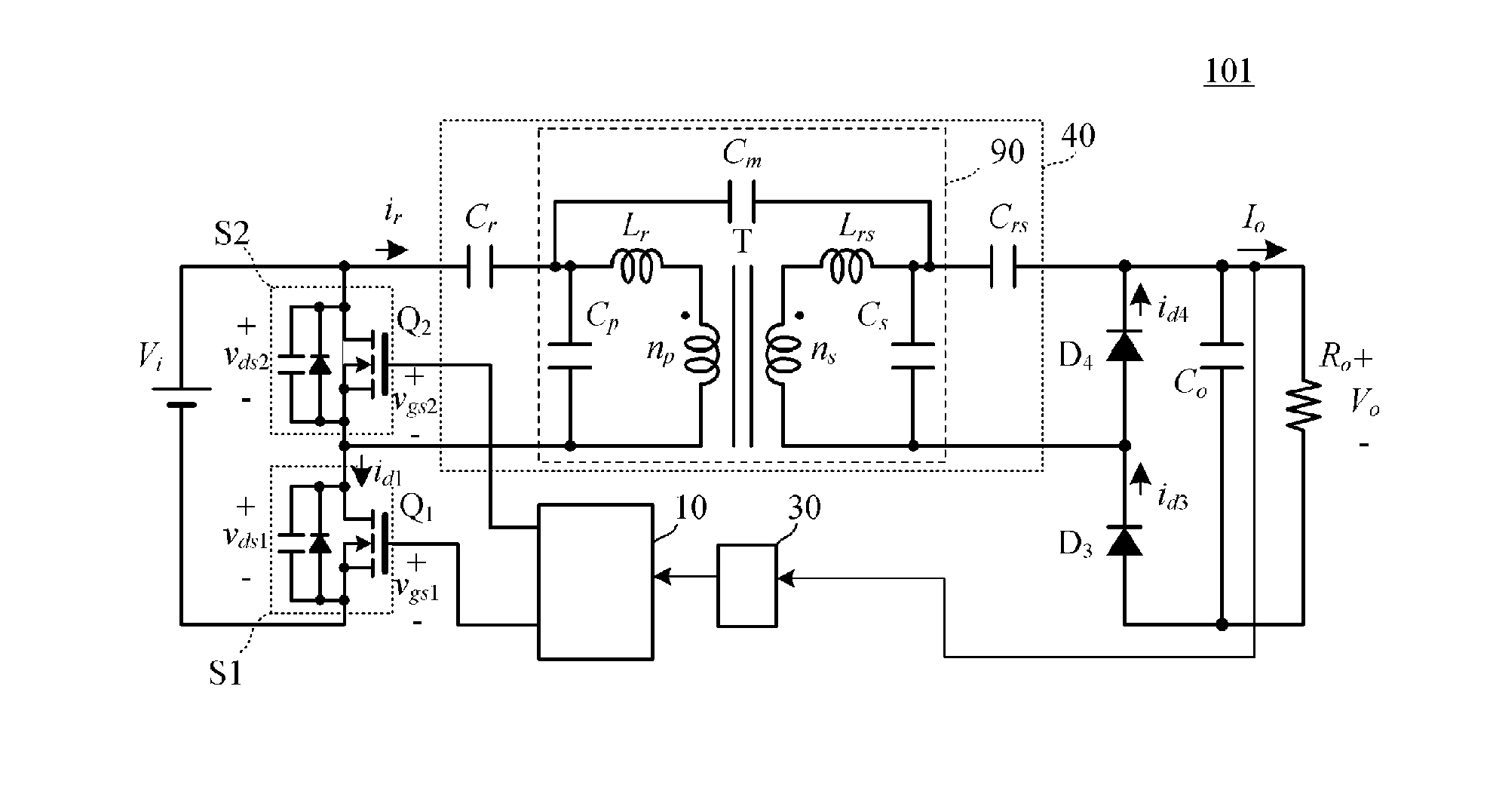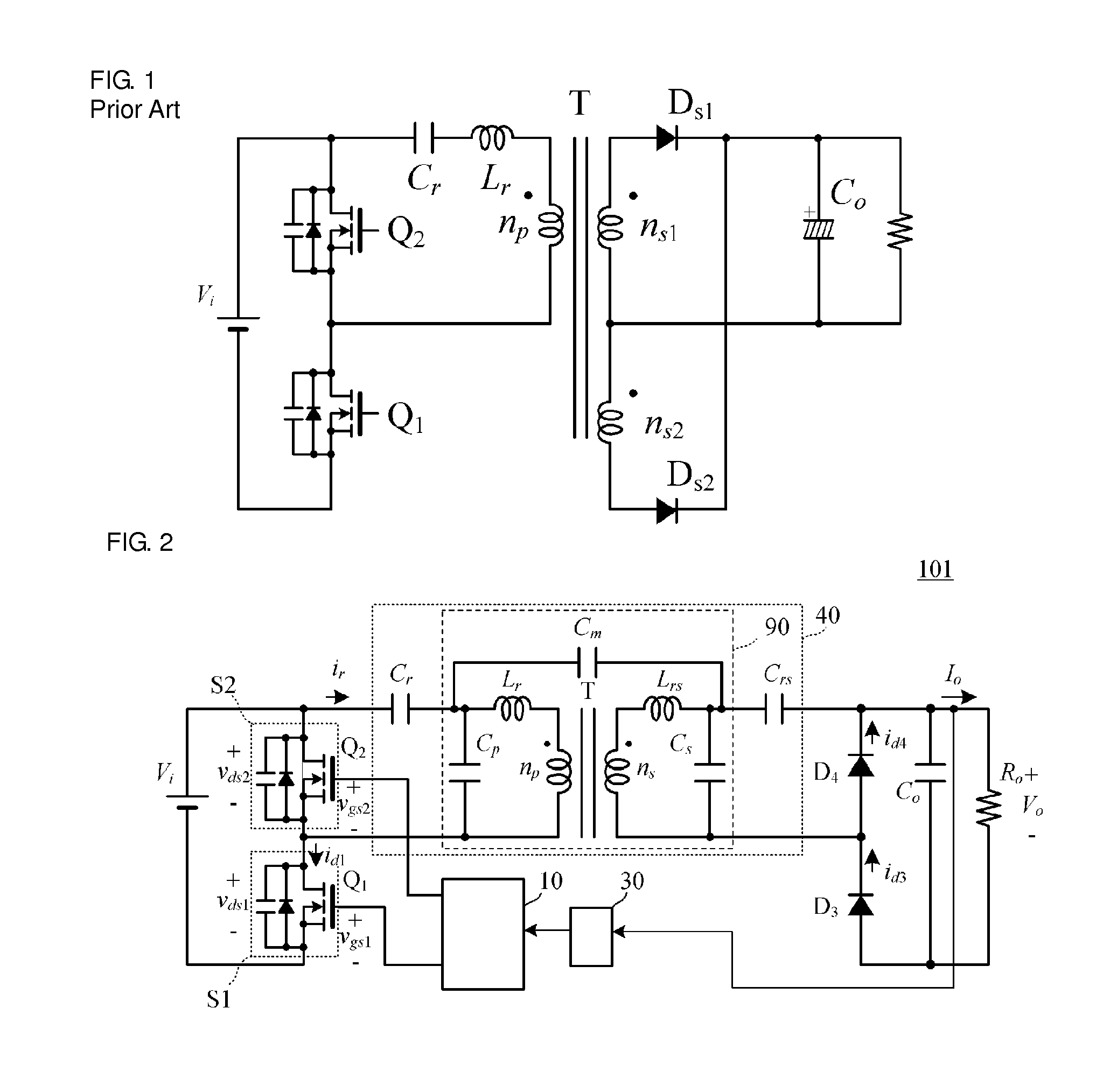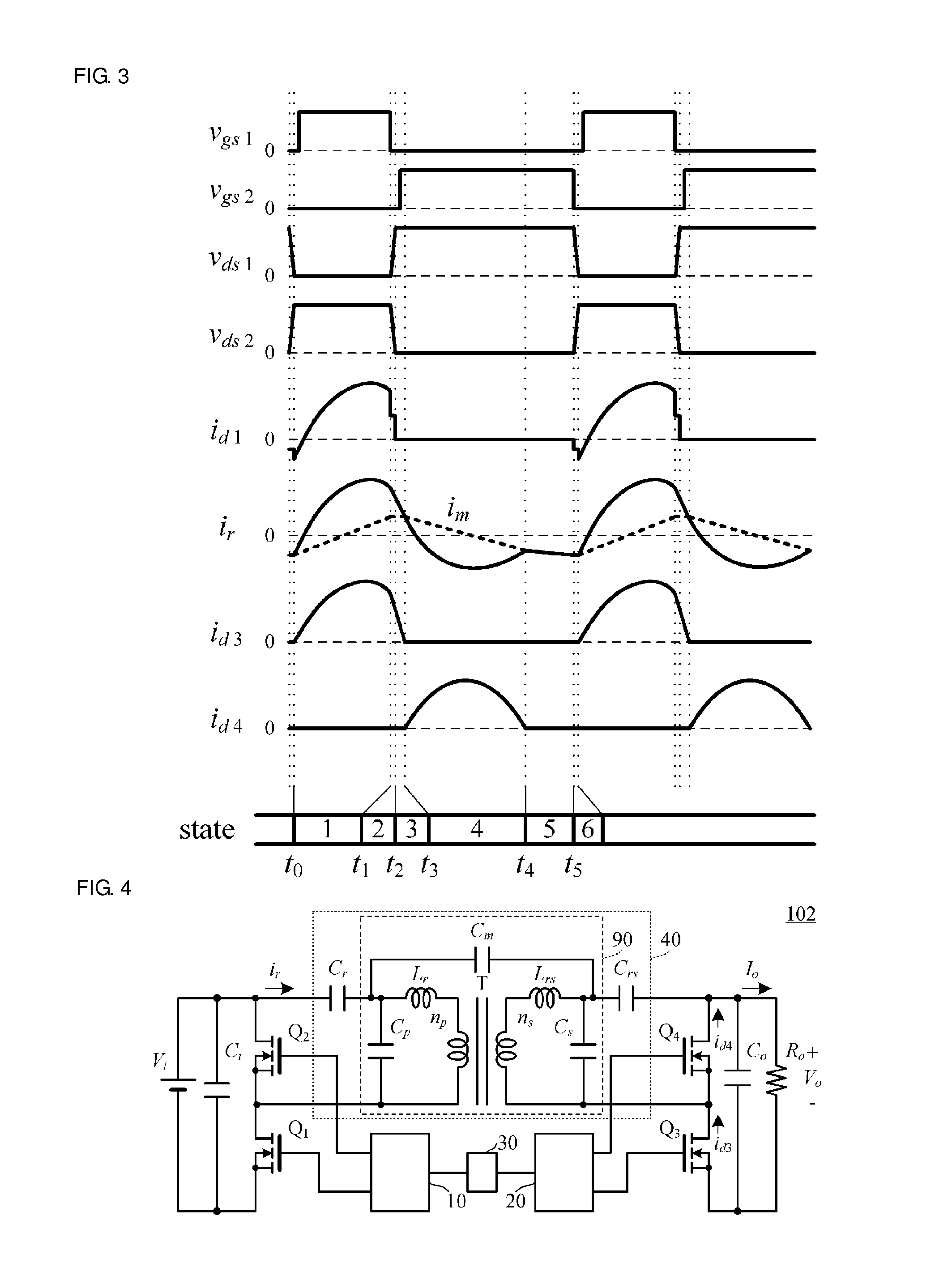Switching power supply device
a power supply device and power supply technology, applied in the direction of electric variable regulation, process and machine control, instruments, etc., can solve the problems of power conversion efficiency reduction, difficulty in increasing the degree of magnetic coupling of the transformer, and the inability to control output. the effect of small power loss
- Summary
- Abstract
- Description
- Claims
- Application Information
AI Technical Summary
Benefits of technology
Problems solved by technology
Method used
Image
Examples
first preferred embodiment
[0050]FIG. 2 is a circuit diagram of a switching power supply device 101 according to a first preferred embodiment of the present invention.
[0051]The switching power supply device 101 is a circuit including an input unit to which an input power supply Vi is input, and an output unit from which stable direct-current power is supplied to a load Ro. The switching power supply device 101 includes the units described below.
[0052]An electromagnetic field coupling circuit 90 includes a transformer including a primary winding np and a secondary winding ns.
[0053]A switching circuit S1 including a switching element Q1, and a switching circuit S2 including a switching element Q2, which are connected to the primary winding np, are also provided.
[0054]Rectifier diodes D3 and D4 and a smoothing capacitor Co, which are connected to the secondary winding ns, are provided.
[0055]A first LC series resonant circuit is connected to the primary winding np and defined by a series resonant inductor Lr and ...
second preferred embodiment
[0098]FIG. 4 is a circuit diagram of a switching power supply device 102 according to a second preferred embodiment of the present invention. In this example, unlike the switching power supply device 101 according to the first preferred embodiment, FET-type switching elements Q3 and Q4 are preferably disposed instead of the rectifier diodes D3 and D4 on the secondary side. That is, the switching elements Q3 and Q4 define a secondary-side rectifier circuit. The switching elements Q3 and Q4 each include a diode (parasitic diode) and a capacitor (parasitic capacitance) in parallel, and constitute switching circuits S3 and S4, respectively. In addition, a capacitor Ci is disposed in a power supply input unit. A switching control circuit 20 controls the switching elements Q3 and Q4 on the secondary side.
[0099]The magnetizing inductances Lm and Lms of the primary winding np and the secondary winding ns of the transformer T, and the parasitic capacitances and parasitic diodes of the switch...
third preferred embodiment
[0108]FIG. 6 is a circuit diagram of a switching power supply device 103 according to a third preferred embodiment. In this example, capacitors Ci1 and Ci2 that divide the voltage at the input power supply Vi, and capacitors Cis1 and Cis2 that divide the output voltage Vo are provided. Here, the inductors Lm and Lms, which are the magnetizing inductances of the primary winding np and the secondary winding ns of the transformer T or external inductances, are illustrated. The other components are similar to those in the second preferred embodiment illustrated in FIG. 4.
[0109]In the third preferred embodiment, the input voltage Vi is divided by the capacitors Ci1 and Ci2, and the output voltage Vo is divided by the capacitors Cis1 and Cis2. Since the capacitors Ci1 and Cis1 divide a direct-current input voltage, the capacitors Ci1 and Cis1 serve to hold a direct-current voltage. Thus, the series resonant capacitors Cr and Crs operate as capacitors for resonance, and do not serve to hol...
PUM
 Login to View More
Login to View More Abstract
Description
Claims
Application Information
 Login to View More
Login to View More - R&D
- Intellectual Property
- Life Sciences
- Materials
- Tech Scout
- Unparalleled Data Quality
- Higher Quality Content
- 60% Fewer Hallucinations
Browse by: Latest US Patents, China's latest patents, Technical Efficacy Thesaurus, Application Domain, Technology Topic, Popular Technical Reports.
© 2025 PatSnap. All rights reserved.Legal|Privacy policy|Modern Slavery Act Transparency Statement|Sitemap|About US| Contact US: help@patsnap.com



